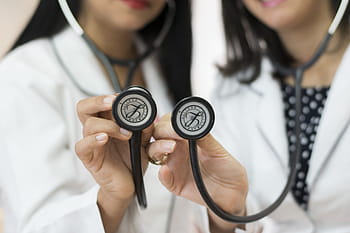Units 10 & 11 Horizon Business Village
1 Brooklands Road, Weybridge, Surrey. KT13 0TJ.8am - 6pm Weekdays
8am - 1pm SaturdaysDIY Health

DIY health
As far as technology is concerned, medical practice is very much behind. In UK general practice, we have been using electronic medical records for more than 25 years. Comparatively, UK hospitals are yet to catch up and their medical records are still handwritten.
Still, we can still do much to bring ourselves up to date in general practice. We have been doing telephone consultations for some time, but video consultations are far from the norm. This is about to change with the COVID-19 pandemic as all UK general practices have been asked to make this a reality as soon as possible.
What this means for doctors
All UK general practices have been forced to have mostly telephone and video consultations in order to limit the spread of the COVID-19 virus. For doctors that means dealing with more uncertainty and risk as we are unable to examine patients. However, you might be surprised to learn that for many conditions an examination is not absolutely necessary. The most important part of the consultation is the history itself. This is what the great Professor William Osler meant when he said:
Listen to the patient, he is telling you the diagnosis.
William Osler
An experienced doctor can therefore make a good diagnosis over the telephone. Video consultations can give the added benefit of seeing the patient when needed and reduces uncertainty and risk further. Prescriptions can also be sent electronically to the most convenient pharmacy and further reduce the need for direct contact.
Disadvantages include diagnostic error, unnecessary or wrong medication or over-prescribing. This is most detrimental in the case of antibiotics as increasing antibiotic use can lead to greater antibiotic resistance. It could also cause the appearance of ‘superbugs’, something we really do not need right now!
What this means for patients
Research has shown that remote consulting is acceptable to most patients. Only around 25% actually want to have a face-to-face consultation. It offers great convenience especially for routine tasks for stable patients. Just think of the time and effort in having to make a trip to the clinic and then finding parking!
The COVID-19 crisis is likely to last about a year. As patients get used to the convenience of remote consulting, this genie is unlikely to go back into the lamp! This means that telephone and video consultations are likely to be the future norm, with face to face consultations only when absolutely necessary.
It also means that patients will need to take greater responsibility for their health. For example, a patient with high blood pressure is unlikely to be invited to the clinic just to have his blood pressure checked during the COVID-19 crisis. It would be ideal if the patient purchases his own blood pressure machine so that he can check this at home. If he needs to have his medication adjusted, then he can let his doctor know his home blood pressure readings. The doctor can then adjust the medication on the basis of these readings.
Over the coming months, self-care is going to be a necessity for many patients. Appointments in hospital are already being cancelled for outpatient visits and surgery. Clinical staff are being diverted from their own specialties to aid in the care of COVID-19 patients. In essence, routine medical care is being taken away and patients themselves will have to fill part of that gap with self-care.
The future
Over the coming year, I foresee a number of innovations in the delivery of healthcare. An increasing number of patients will be taking more responsibility for their own health. They will also be dealing with their own medical problems in partnership with their doctors like never before.
This can only be a good thing. It is the silver lining to the current cloud hanging over us all.


